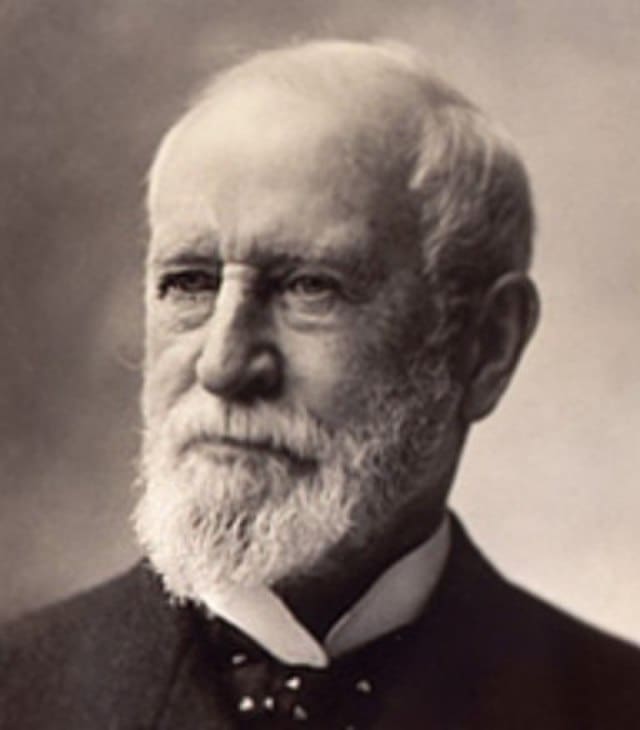
Jewelry Designers Throughout history
Discover the history of Charles Lewis Tiffany, the founder of Tiffany & Co., including his early life, brand founding, design innovations, and legacy in luxury goods.

Charles Lewis Tiffany
The Visionary Behind Tiffany & Co
Charles Lewis Tiffany, a name synonymous with luxury and timeless elegance, is the brilliant mind behind the world-renowned Tiffany & Co. From humble beginnings to becoming a titan in the jewelry industry, Tiffany’s journey is a story of innovation, dedication, and an unwavering commitment to excellence. This blog explores the life and legacy of Charles Lewis Tiffany, shedding light on his early years, the founding of his iconic company, his groundbreaking contributions to jewelry design, and the enduring influence of his brand.
Early Life and Beginnings
Charles Lewis Tiffany was born on February 15, 1812, in Killingly, Connecticut. Raised in a modest family, he demonstrated an early interest in business and entrepreneurship. His father, Comfort Tiffany, was a cotton manufacturer, which exposed young Charles to the intricacies of trade and commerce from an early age. This foundational experience would later play a crucial role in shaping his business acumen.

In 1837, at the age of 25, Charles Lewis Tiffany moved to New York City with his childhood friend John B. Young. With a loan of $1,000 from Tiffany’s father, they opened a stationery and fancy goods store called Tiffany & Young. The store initially focused on selling a variety of goods, including stationery, porcelain, and glassware. Little did they know, this small venture would eventually grow into one of the most prestigious jewelry brands in the world.
The Founding of Tiffany & Co.
The pivotal moment for Tiffany & Co. came in 1841 when Charles Tiffany and John Young partnered with J.L. Ellis to form Tiffany, Young & Ellis. This partnership allowed the business to expand its inventory to include jewelry, a decision that would forever change the trajectory of the company. By 1853, Charles Tiffany took sole control, rebranding the business as Tiffany & Co., and shifted the focus entirely to jewelry.
Tiffany’s keen eye for quality and design set his store apart from others. He emphasized the importance of exceptional craftsmanship and sourced the finest materials from around the world. This commitment to excellence quickly earned Tiffany & Co. a reputation for luxury and sophistication. The company’s success was further bolstered by Tiffany’s innovative marketing strategies, which included the introduction of the now-iconic Tiffany Blue Box—a symbol of elegance and exclusivity.
Innovations in Jewelry Design
Charles Lewis Tiffany was not just a savvy businessman but also a pioneer in jewelry design, introducing the revolutionary Tiffany Setting in 1886, which elevated the diamond above the band to capture maximum light and brilliance, becoming the standard for engagement rings. Another testament to his innovative spirit is the Tiffany Yellow Diamond, discovered in South Africa in 1877 and acquired by Tiffany, who transformed the 287.42-carat rough diamond into a stunning 128.54-carat cushion-shaped gem with 82 facets, symbolizing the brand’s commitment to exceptional quality and craftsmanship.
In addition to the Tiffany Setting, Charles Tiffany was instrumental in popularizing American gemstones and promoting the use of platinum in jewelry. His dedication to quality and innovation earned Tiffany & Co. numerous accolades, including the grand prize for jewelry and a gold medal for silverware at the 1867 Paris World’s Fair—the first time an American company received such honors. These achievements solidified Tiffany’s status as a leader in the global jewelry market.
The Tiffany Legacy
Beyond his contributions to jewelry design, Charles Lewis Tiffany was a visionary who understood the importance of branding and customer experience. He introduced the concept of the mail-order catalog, which allowed customers across the country to purchase Tiffany’s exquisite creations without visiting the store. This innovative approach significantly expanded the company’s reach and accessibility, contributing to its rapid growth and success.
Charles Tiffany’s influence extended beyond the confines of his business. He was a philanthropist and a patron of the arts, supporting various cultural and educational institutions. His legacy of excellence and innovation was carried forward by his son, Louis Comfort Tiffany, who became a renowned artist and designer in his own right, further enhancing the Tiffany brand’s reputation for artistry and craftsmanship.
Enduring Influence and Modern Relevance
Charles Lewis Tiffany passed away in 1902, but his legacy still endures. Today, Tiffany & Co. continues to uphold the principles established by its founder over 180 years ago, remaining a symbol of luxury, elegance, and timeless beauty. Its flagship store on Fifth Avenue in New York City embodies Charles Tiffany’s enduring vision and commitment to excellence. The brand’s iconic designs, such as the Tiffany & Co. Schlumberger, Elsa Peretti, and Paloma Picasso collections, captivate customers worldwide. Additionally, the company’s dedication to sustainability and ethical sourcing reflects Tiffany’s commitment to quality and integrity, helping the brand maintain its relevance and appeal to a new generation of discerning customers.
Resources:
- Charles Lewis Tiffany: https://en.wikipedia.org/
- Charles Lewis Tiffany – American Jeweler: https://www.britannica.com/
- Charles Lewis Tiffany: https://commons.wikimedia.org/
- Charles Lewis Tiffany & John B. Young inside “Tiffany & Young” store.: https://commons.wikimedia.org/
- First Tiffany & Co. store located in Lower Manhattan circa 1837.: https://loc.getarchive.net/
- Tiffany & Co – Boxes by ajay_suresh on Flickr: https://www.flickr.com/
- Tiffany Yellow Diamond by Shipguy: https://commons.wikimedia.org/
- Tiffany & Co. Bracelet with Charms by Xellena on Good Fon: https://www.goodfon.com/
- Tiffany Diamond Ring by The Glorious Studio via Pexels: https://www.pexels.com/
- Louis Comfort Tiffany by William Kurtz: https://itoldya420.getarchive.net/
- Charles Lewis Tiffany in his home circa 1902 by Jessie Tarbox Beals: https://commons.wikimedia.org/
- Blog outline and revising assisted by AI resources such as Google Gemini.
Inspired by Charles Lewis Tiffany?
If Charles Lewis Tiffany’s story sparks in you a passion to challenge conventional boundaries or to blend traditional elegance with contemporary innovation, My Jewelry Repair is here to make your vision a reality. Let us be your partner in restoring a piece of jewelry that doesn’t merely decorate but tells the unique story of your personal journey, continuing the legacy of creativity and transformation.

Check Out the Magic of Our Jewelry Services!
